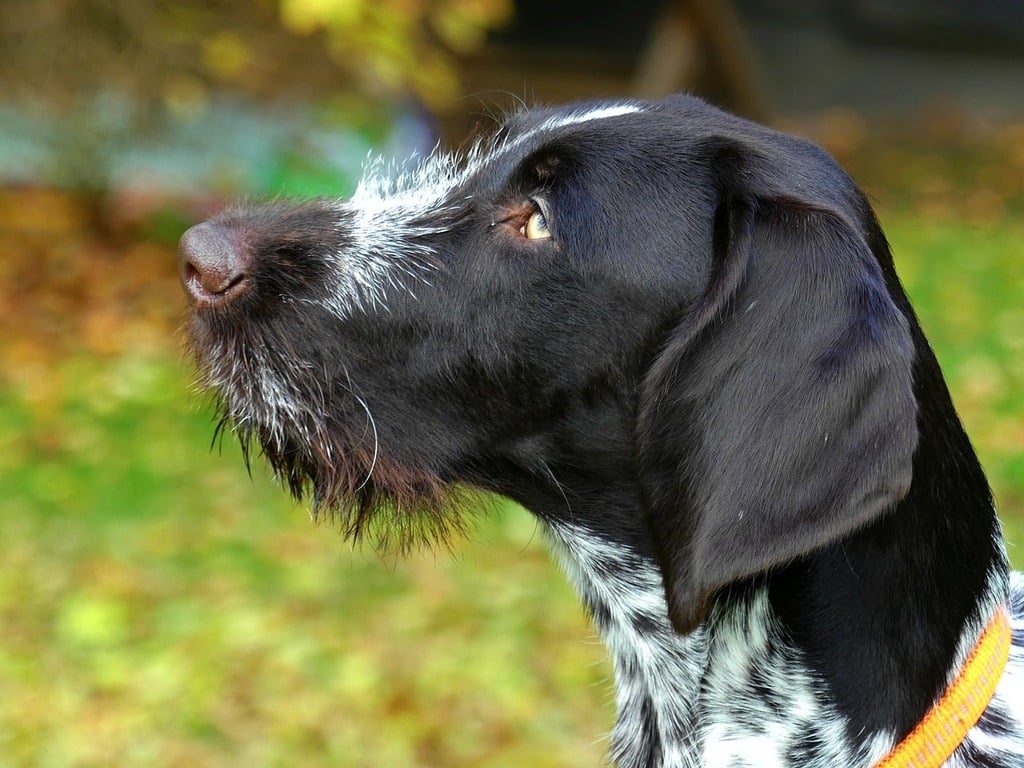Vaccinating hunting dogs is a crucial aspect of responsible pet ownership and their overall well-being. Hunting dogs are often exposed to various environmental factors that can put their health at risk, including infectious diseases, parasites, and harmful pathogens. Proper vaccination not only helps protect hunting dogs from these threats but also ensures that they remain in peak physical condition to perform their duties in the field. This article explores the features of vaccination for hunting dogs, the importance of specific vaccines, and the vaccination schedule that ensures these active companions stay healthy and safe.

1. The Importance of Vaccination for Hunting Dogs
Hunting dogs are exposed to a range of challenges that make them more vulnerable to infections and diseases compared to house pets. They spend a significant amount of time outdoors, often in wild or rural environments, where they may come into contact with other animals, pests, and environmental hazards. These factors increase the likelihood of exposure to contagious diseases, parasites, and toxins. Vaccinating hunting dogs is an effective way to minimize these risks and maintain their health.
Vaccination helps dogs develop immunity to various diseases that could otherwise result in serious illness or death. For hunting dogs, their physical endurance and ability to work depend on maintaining good health. Vaccines not only protect dogs from dangerous diseases but also prevent the spread of infections to other animals, including other hunting dogs, pets, and even humans.
2. Common Vaccines for Hunting Dogs
Vaccines for hunting dogs are typically categorized into core and non-core vaccines. Core vaccines are recommended for all dogs, regardless of their lifestyle, as they protect against serious and widespread diseases. Non-core vaccines are given based on the dog’s specific risk factors, such as location, lifestyle, and exposure.
A. Core Vaccines
Core vaccines are considered essential for all dogs, including hunting dogs, because they protect against diseases that are highly contagious, life-threatening, and commonly found in the environment. The core vaccines include:
- Rabies Vaccine
- Rabies is a deadly viral disease that can affect any mammal, including dogs, wildlife, and humans. Hunting dogs are at a higher risk of being exposed to rabies because they often come into contact with wild animals, such as raccoons, foxes, and skunks, that are potential carriers of the virus. Rabies is typically transmitted through the saliva of an infected animal via bites or scratches. The rabies vaccine is critical for preventing the disease, as it is almost always fatal once symptoms appear. In many areas, rabies vaccination is legally required for dogs.
- Distemper Vaccine
- Distemper is a highly contagious viral infection that affects a dog’s respiratory, gastrointestinal, and nervous systems. It can be fatal if left untreated. Hunting dogs may be exposed to the virus in areas where other animals, such as foxes, coyotes, and feral dogs, roam. The distemper vaccine is an essential part of a hunting dog’s vaccination schedule, as it provides immunity against this dangerous disease.
- Parvovirus Vaccine
- Parvovirus is a highly contagious viral infection that primarily affects a dog’s intestines, leading to severe vomiting, diarrhea, and dehydration. In severe cases, it can lead to death. Hunting dogs are at risk of parvovirus due to their outdoor activities and exposure to other dogs, particularly in hunting clubs, kennels, or areas with a high concentration of dogs. The parvovirus vaccine is essential for protecting dogs from this life-threatening disease.
- Adenovirus Vaccine (Canine Hepatitis)
- Canine adenovirus causes hepatitis, which affects the liver and can lead to severe illness or death in dogs. Hunting dogs that frequent areas where wild animals or other dogs may have been exposed to the virus are at a higher risk. The adenovirus vaccine provides protection against both canine hepatitis and respiratory disease caused by adenovirus type 2.
B. Non-Core Vaccines
Non-core vaccines are administered based on the dog’s specific risk factors, such as their environment, activities, and exposure to certain animals. These vaccines protect against diseases that are less widespread but still present a significant threat. For hunting dogs, the following non-core vaccines are often recommended:
- Leptospirosis Vaccine
- Leptospirosis is a bacterial infection that can be transmitted through contact with contaminated water, urine, or soil. Dogs that hunt near rivers, lakes, or marshes may be at risk of contracting leptospirosis, as wildlife such as rodents can carry the bacteria. Leptospirosis can cause liver and kidney failure and may be fatal if untreated. The leptospirosis vaccine is important for dogs that are frequently exposed to water sources or wildlife.
- Bordetella Vaccine (Kennel Cough)
- Bordetella bronchiseptica is a bacterium that causes kennel cough, a highly contagious respiratory disease. While kennel cough is typically mild, it can cause severe coughing, gagging, and difficulty breathing. Hunting dogs that interact with other dogs, either in training or during hunting trips, are at risk of exposure to this bacterium. The Bordetella vaccine is particularly important for dogs that spend time in group settings, such as hunting clubs or dog parks.
- Lyme Disease Vaccine
- Lyme disease is caused by bacteria transmitted by ticks. Hunting dogs are especially susceptible to Lyme disease because they are often in environments where ticks are abundant, such as wooded areas or fields. Lyme disease can lead to joint pain, fever, and, in severe cases, kidney failure. The Lyme disease vaccine can provide additional protection for dogs that spend a lot of time in tick-infested areas.
- Canine Influenza Vaccine
- Canine influenza, also known as dog flu, is a contagious respiratory illness caused by the H3N8 or H3N2 flu viruses. Although it is not as common as other diseases, it can spread quickly in areas where dogs gather, such as hunting clubs or training fields. The canine influenza vaccine can help protect hunting dogs from this illness, especially if they travel to areas with large concentrations of dogs.
3. Vaccination Schedule for Hunting Dogs
The vaccination schedule for hunting dogs is similar to that of any other dog, with initial vaccinations given when the dog is a puppy and booster shots administered throughout their life. However, there are certain considerations to take into account for hunting dogs, given their active lifestyle and potential exposure to various environmental risks.
A. Puppy Vaccination Schedule
Puppies should start their vaccination regimen at around 6 to 8 weeks of age. They will typically receive a series of vaccinations at intervals of 3 to 4 weeks until they are 16 to 18 weeks old. The core vaccinations (rabies, distemper, parvovirus, and adenovirus) are administered in the first few rounds, with additional vaccines (such as leptospirosis, Bordetella, and Lyme disease) given based on the puppy’s risk factors. This initial series of vaccinations is critical for establishing the dog’s immune system and providing early protection against diseases.
B. Adult Dog Vaccination Schedule
After the initial series of vaccinations, adult hunting dogs should receive booster shots to maintain immunity. Core vaccines are typically administered every 1 to 3 years, depending on the vaccine and local regulations. Non-core vaccines may need to be given annually, especially for diseases like leptospirosis, Bordetella, and Lyme disease, which hunting dogs are more likely to encounter.
C. Special Considerations for Hunting Dogs
Hunting dogs may require more frequent vaccinations and health checks, especially if they are exposed to high-risk environments or travel frequently. It’s important to work with a veterinarian who understands the unique needs of hunting dogs and can tailor the vaccination schedule accordingly. If a hunting dog is frequently exposed to wild animals or certain geographic areas with endemic diseases, additional vaccines may be necessary to provide full protection.
4. Conclusion
Vaccination is a vital part of maintaining the health and performance of hunting dogs. By protecting these dogs from serious diseases, vaccines ensure that they remain in peak physical condition, ready for the demands of hunting and outdoor activities. Core vaccines such as rabies, distemper, parvovirus, and adenovirus are essential for every dog, while non-core vaccines may be added based on specific environmental factors and risks. A proper vaccination schedule, tailored to the needs of hunting dogs, helps keep them safe, healthy, and ready for action in the field. Regular veterinary visits and staying up to date with vaccinations are essential for ensuring the long-term health and well-being of these hardworking companions.





























